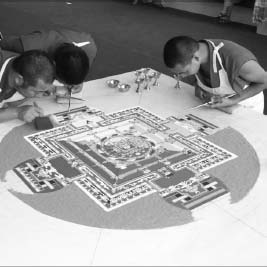BuddhismReligious Beliefs |
Are dreams and visions important to Buddhist tradition? |
Important figures in Buddhist tradition are said to have learned essential truths through dreams and visions. Queen Maya dreamed that she would give birth under unusual circumstances to a child who would become the Buddha. In dreams famous people learn of the proper course of action. Buddhist sources tell, for example, of how a dream persuaded the Chinese Emperor Ming Di to send for Buddhist missionaries and scriptures. Stories of this sort are told about many holy persons throughout Buddhist history, usually as a vehicle for underscoring the individual’s personal authority.
Accounts of dreams and visions are by no means uniquely Buddhist, of course, and tell us more about the tone and feel of popular Buddhist lore than about the tradition’s central teachings. Visionary meditative techniques, a different matter altogether, are of great importance in some Mahayana schools. Esoteric schools, such as those of Tibetan Vajrayana Buddhism, use mandalas as visual aids in complicated techniques for creating mental images. The meditator generates a visionary world patterned on the mandala, in which the divine and the human interact and all distinctions vanish. Simpler visualization techniques are used in the more popular Pure Land tradition as well. Facing west, the meditator visualizes the sun setting, and water turning into ice. Gradually, the mind fills with images of a golden land with crystalline streams, lotus-filled lakes with golden bottoms, and shores of diamond sand. As the Pure Land, with its myriad jewelled palaces, takes shape in the mind’s eye, the meditator sees the Buddha Amitabha and his attendant Bodhisattvas. At length the meditator visualizes himself being reborn into that happy land enfolded in a lotus flower.

Sand-painted mandala executed by Tibetan monks of the Gelug-pa (Yellow Caps) to which the Dalai Lama belongs. (Photo courtesy of David Oughton.)
